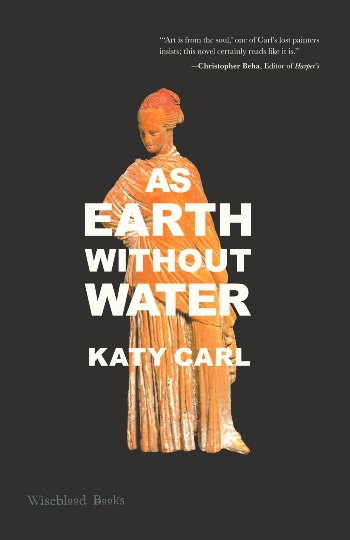Colloquium on Early English Language, Literature, and Inscriptions
Virtual colloquium organized by The Center for Medieval and Byzantine Studies and the new journal Runes:et:al.
Tuesday, November 2, 2:00-4:00 pm (via Zoom)
Please join us for three conference-style presentations and an extended discussion on the intersection of inscriptions, historical linguistics, and literature in early medieval England.
Presenters:
Kerstin Majewski (LMU Munich), "An Introduction to the Ruthwell Crucifixion Poem."
Philipp Simon (LMU Munich), "News from Bavaria: The Runic Inscription in the Kleines Schulerloch Viewed Literally Under a New Light."
Prof. Hans Sauer, (LMU Munich), “Binomials in the History of English.”
If interested, please register via this form. For further information, please contact Dr. Lilla Kopár at Kopar@cua.edu.
Vermilion Writing Workshop
Wednesday, November 3rd, 7-8pm in Pryz 327
This workshop is open to all students (grad and undergrad) at Catholic U who are looking for a place to share their creative writing with others and receive peer feedback. Bring any and all kinds of creative work. The workshop will mainly consist of a large group discussion, but there will be Vermilion staff members available for shorter individual conversations about your work. Come bring a piece to talk about, complete or incomplete! Be a part of Vermilion’s work to cultivate a creative writing community at Catholic U!
Although it's not necessary to RSVP, you may do so via the Nest. For questions or accommodations, please contact: Matthew Sawtelle (sawtelle@cua.edu).
Reading Together: "East Coker"
November 8th, 8-9:30pm
With Dr. Kevin Rulo and Dr. Christopher Petter (Ph.D. alumnus, 2021). Location: Aquinas 102.
Join us for the second event in a series of conversations about T. S. Eliot's Four Quartets hosted by the English Department. Co-sponsored by English Society and Vermilion. For more info, please see the series website or the Nest.
Call for Papers: Graduate Student Conference
“Remembering and Reimagining in the Middle Ages"
The Center for Medieval and Byzantine Studies at Catholic University
Thursday, March 3rd - Friday, March 4th, 2022
The remembered afterlife of past events, distinct from the strictly historical particulars of the events themselves, represents a richly varied point of departure for understanding the cultures and history of the Middle Ages. Memory is always a dynamic process. It is a product of the present aimed at the past and a phenomenon at once personal and collective. Memory spans cultures, social strata, and time periods through the selective processes of remembering and reimagining. How did such processes of memory play out in the cultures of the medieval world? What events were deemed fit to remember and how were they reimagined? What was the medieval relationship between power/authority and memory/oblivion? How were medieval memories of the past shaped by texts, rituals, and material culture? How ought we, as scholars of the Middle Ages, remember or reimagine the medieval world? The Center for Medieval and Byzantine Studies at CUA invites graduate student medievalists from all institutions and disciplines to explore these questions and many others by presenting their research on the theme of ‘Medieval Memory’ in the form of 15-minute conference presentations (followed by 5 minutes of discussion).
Abstracts of 250 words may be submitted electronically via Google Form by Friday, December 31st, 2021. Final decisions about acceptance will be announced by Saturday, January 15th, 2022. While this conference is primarily for graduate students (from all disciplines and institutions), advanced undergraduates are welcome and encouraged to participate. We intend to hold this conference in person, in order to facilitate fruitful and collegial interaction. However, virtual presentations may also be accommodated. For more information, please contact Casey Knott (55knott@cua.edu).

Virtual Author Reading
On Friday, October 22nd, English hosted a reading by Katy Carl (Editor-in-Chief, Dappled Things), who read from and discussed her debut novel As Earth Without Water (Wiseblood Books). The virtual event was live-streamed via the English Department YouTube channel. The recording of the reading is available for viewing.
"Katy Carl’s As Earth Without Water is a sharp and moving meditation on freedom, choice, and the creative life. 'Art is from the soul,' one of Carl’s lost painters insists; this novel certainly reads like it is."
—Christopher Beha
The event was co-sponsored by English Society and Vermilion.
